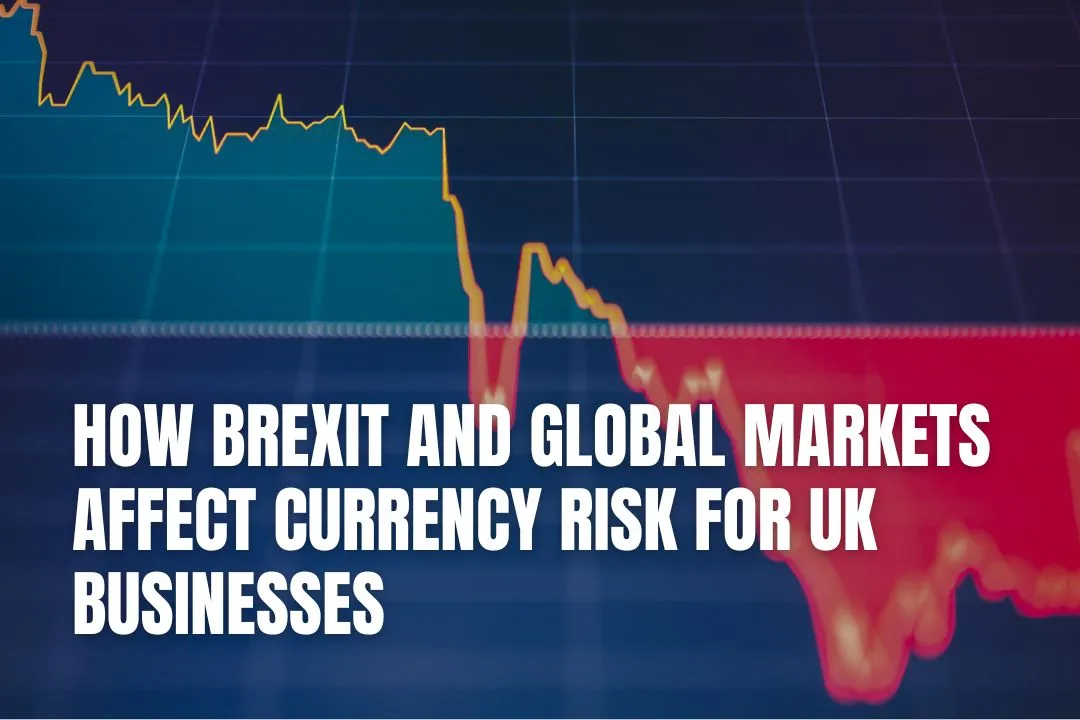
Editorial Disclaimer
This content is published for general information and editorial purposes only. It does not constitute financial, investment, or legal advice, nor should it be relied upon as such. Any mention of companies, platforms, or services does not imply endorsement or recommendation. We are not affiliated with, nor do we accept responsibility for, any third-party entities referenced. Financial markets and company circumstances can change rapidly. Readers should perform their own independent research and seek professional advice before making any financial or investment decisions.
The modern UK business landscape is defined by two key variables: the economic realities of a post-Brexit legislation and the inherent volatility of global financial markets. Successfully navigating this new normal requires a technical understanding of currency risk, along with knowing how to mitigate financial exposure. We’ve discussed issues and outlined a practical, realistic methodology for managing this risk.
Five years ago, the UK's departure from the European Union fundamentally altered its trading relationships and regulatory framework. This directly impacted import and export costs and, critically, now leaves businesses exposed to heightened currency fluctuations.
The value of the pound sterling is a major variable in this new dynamic. Since 2020, the UK's investment landscape has been defined by trade friction and unpredictable currency movements. With complex and fragmented regulations to deal with, things are even harder for startups. And for a business with international assets or liabilities, a volatile pound can dramatically affect the bottom line. An unexpected drop in the pound’s value can inflate the cost of imported raw materials, for example.
For many SMEs, the challenge isn’t just recognising the risks but building the internal expertise to respond effectively. Larger corporations may have treasury teams dedicated to monitoring currency exposure, but smaller businesses often rely on banks or third-party advisors. This makes it crucial for business leaders to invest in financial literacy around forex markets and Brexit-related trade changes.
Beyond just Brexit, the international finance system presents its own set of unpredictable variables. From the movement of the US dollar to the economic performance of EU trade partners, global factors directly influence the pound's exchange rate. They include:
A technical investor recognises that these trends create inherent unpredictability in exchange rates, making it difficult to forecast future costs or revenues. For businesses, this unpredictability has very real consequences, pricing products for export, negotiating supplier contracts, and even hiring staff abroad all become more complex when exchange rates swing suddenly.
In addition, global supply chain pressures have made currency risk more visible. Rising fuel costs, shifting trade alliances, and unexpected events like the pandemic or conflicts have shown just how quickly a local business can be impacted by global finance. For UK companies, this reinforces the need to treat currency risk not as an abstract concept but as a daily operational reality.
With no central exchange, the forex market is where businesses, governments, and investors buy or sell currencies. To hold financial stability and protect profits against these unpredictable movements, businesses can use forex hedging to be more strategic.
Forex hedging is a strategy designed to protect a business from adverse moves in the market. It involves using financial instruments to lock in a specific exchange rate for a future transaction. Here’s how it works:
While some leaders hesitate to hedge due to perceived costs, the reality is that these costs are often far smaller than the financial damage caused by uncontrolled exposure. Even a few percentage points of currency movement can translate into thousands of pounds lost on a single transaction.
Amid global market volatility, businesses must precisely quantify their exposures and integrate hedging strategies as a core component of their financial defence. This expenditure is vital protection against external, uncontrollable market forces. Over time, a disciplined approach not only stabilises cash flow but also gives businesses greater confidence to pursue international growth opportunities.
Ultimately, Brexit and global financial turbulence have made currency risk impossible to ignore. By combining awareness, education, and strategic hedging tools, UK businesses can move beyond a reactive stance and adopt proactive measures that safeguard both resilience and competitiveness. Those who adapt early will be far better positioned to thrive in an economy where uncertainty has become the norm.
Currency risk is the financial danger your business faces from changes in the exchange rate between the pound and other currencies. If you buy materials from abroad or sell products internationally, a sudden drop in the pound's value could increase your costs or reduce your revenue unexpectedly.
Brexit altered the UK's trading relationship with the EU, creating economic uncertainty and trade friction. This has led to greater volatility in the value of the pound sterling, making it harder for you to predict costs and profits related to international trade.
Forex hedging is a strategy to protect your business from unfavourable currency movements. It involves using financial tools, such as forward contracts, to secure a specific exchange rate for a future date. This gives you certainty over your future costs and revenues, protecting your bottom line from market swings.
No, businesses of all sizes can benefit from hedging. While larger corporations might have dedicated teams, smaller and medium-sized enterprises can work with advisors to manage their currency exposure. The cost of hedging is often much lower than the potential losses from an unexpected currency shift.
Several global trends influence the pound's value. These include monetary policy decisions by major central banks like the US Federal Reserve, differing inflation rates between countries, and significant geopolitical events that cause investors to move their money to 'safe-haven' currencies.